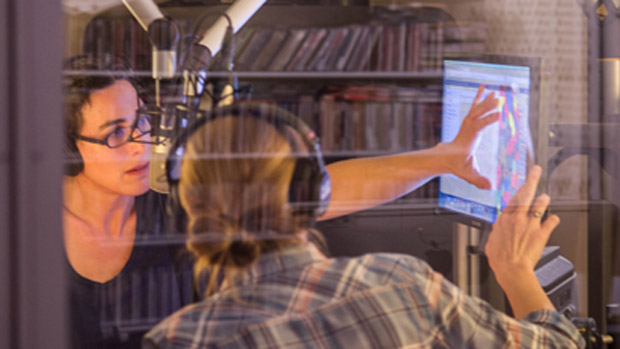Serial podcast review: what we learnt from episode 11, Rumours
This week on the Serial podcast, Adnan says he just wants the scrutiny to be over

A free daily email with the biggest news stories of the day – and the best features from TheWeek.com
You are now subscribed
Your newsletter sign-up was successful
The penultimate episode of Serial, the wildly successful podcast exploring the case of Adnan Syed, the man convicted of murdering his ex girlfriend, Hae Min Lee, in Baltimore in 1999, raises some serious questions about the podcast itself. Has it been a legitimate experiment in narrative journalism or an unwelcome intrusion into a relatively private man’s life?
After an exhaustive exploration of former acquaintances’ views on whether or not Adnan Syed might be capable of killing, at the end of the episode we hear from the man himself. He says, quite plainly, he does not care what anyone thinks anymore. He just wants it all to be over.
Given that Adnan did not ask for the show to be made in the first place, can it really be justified?
The Week
Escape your echo chamber. Get the facts behind the news, plus analysis from multiple perspectives.

Sign up for The Week's Free Newsletters
From our morning news briefing to a weekly Good News Newsletter, get the best of The Week delivered directly to your inbox.
From our morning news briefing to a weekly Good News Newsletter, get the best of The Week delivered directly to your inbox.
Not even Sarah Koenig, the programme’s producer, could have predicted the runaway success of her own show, but at the end of the episode she seems sympathetic to Adnan’s feelings about the podcast. “It is his nightmare,” she concedes.
Before she comes to this conclusion, though, she finishes the second-last chapter of the investigation she began over a year ago, following up with several people who have contacted her from Baltimore’s “mosque community” to shed further light on Adnan’s character. "There is stuff you don't know about Adnan, stuff you need to know to understand who you are dealing with," Koenig says she was told.
So what are the character questions the latest episode investigates?
Some of the allegations are relatively inconsequential, she says, but one is “so incriminating” that it would have closed the case entirely. But in looking into it, Koenig says she is unable to verify it.
A free daily email with the biggest news stories of the day – and the best features from TheWeek.com
Instead, she is left with the testimony of a number of people who tell her that they think Adnan could have been capable of the crime. Several say that they know things about Adnan's personality that Koenig “is not seeing”. Specifically that he is duplicitous. “The word psychopath gets thrown in sometimes,” she says.
The one rumour she explores in detail is whether or not Adnan stole money from his mosque when he was a boy. Two people say they saw Adnan do it. One says he was stealing every Friday.
"Nobody questioned this good little Muslim kid from the mosque. I mean are you serious? No one could even imagine it", says one former acquaintance who asked to remain anonymous. He estimated that Adnan could have stolen hundreds of thousands of dollars.
Cross-examined by Koenig, Adnan says he did take the money. But he asks what it has to do with the case. He says he has never claimed that he couldn’t have killed his ex-girlfriend because he was a perfect person, so why call his character into question at all? He tells Koenig: "You go from my saviour to my executioner on a daily [basis]... You know flip flop, flip flop, like Mitt Romney."
When taken as a whole, some people who knew Adnan said they thought he could have done the crime, but most, Koenig says, say they don’t believe he had it in him. “He didn't have it in his DNA”.
So why does it matter what people think? Koenig thinks that it matters because it is a human quality to gather evidence about the world around us and then pass judgement on it.
In the end, Adnan says that he knows there is nothing he can do to change people's opinions of him. He says that some people he encounters come to him expecting a monster and some come expecting a victim. And when they don't find either, they don't know what to think.
The convicted killer says he thinks it is "a trap" to try to convince people of things. "It doesn't matter to me how your story portrays me, guilty or innocent, I just want it to be over," Adnan says.
“It will be,” says Koenig, whose podcast attracts a worldwide audience of more than 1.5 million per episode.
“Next time: the final episode of Serial”.
-
 5 calamitous cartoons about the Washington Post layoffs
5 calamitous cartoons about the Washington Post layoffsCartoons Artists take on a new chapter in journalism, democracy in darkness, and more
-
 Political cartoons for February 14
Political cartoons for February 14Cartoons Saturday's political cartoons include a Valentine's grift, Hillary on the hook, and more
-
 Tourangelle-style pork with prunes recipe
Tourangelle-style pork with prunes recipeThe Week Recommends This traditional, rustic dish is a French classic
-
 Serial podcast review: what we learnt from episode 10
Serial podcast review: what we learnt from episode 10In Depth The Best Defense is a Good Defense, latest Serial podcast looks at Adnan's lawyer Cristina Gutierrez
-
 Serial podcast review: what we learnt from episode 9, To Be Suspected
Serial podcast review: what we learnt from episode 9, To Be SuspectedIn Depth This week on the Serial podcast, three new pieces of information appear to punch holes in the prosecution's timeline of events
-
 Serial podcast: an 'ethical minefield' or the best podcast ever?
Serial podcast: an 'ethical minefield' or the best podcast ever?feature It has broken records and become a worldwide hit, but critics are worried about where the Serial podcast may be heading